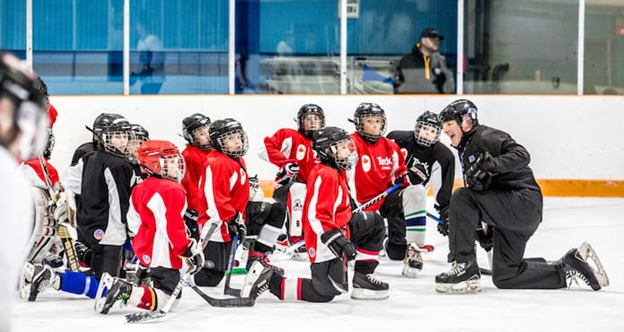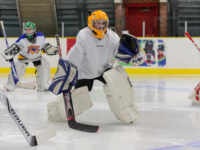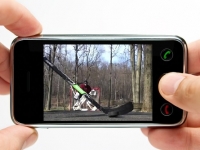For youth hockey coaches, the transition from all fun and games to serious practice can be a difficult one to manage. At a certain age, it is important to begin instilling a more serious side to practices and games. Why? As children develop they require more structure and direction. The games will get more competitive and the skilled players will rise to the top. But in the meantime, it’s up to the coach and his assistants to make the game both fun and serious!
Depending on your coaching style this might already come naturally to you. Finding that balance can be difficult and let’s be honest when it comes to coaching there are always ways to improve our abilities. It might not sound like a lot of fun, but having a serious side to your practices and games can go a long way toward getting your players prepared for the next level of competitive hockey! Let’s discuss a few ways in which you can provide this balance to your players.
Always Start with Fun
No matter what age your players are, organized sports is always about having fun. If your players aren’t enjoying the game, you likely will not get the desired level of effort during practices and games. When it comes to practices focus on skill-building activities and drills that are fun for your players to participate in. You will find that they are more engaged and willing to take part in these drills.
In what is probably an obvious point, kids react much better to fun activities. Keep the game fun and you might be surprised at how easy it will be to transition to a more serious discussion. This will also help to get rid of their initial energy and excitement. Tire them out with a fun drill and you will find you will hold their attention better when it comes time to actually teach them new skills.
Bring the Energy!
This is more of a tip for coaching kids in general: if you can’t match their energy on the ice then it will be hard to keep their focus. This goes for any sport: soccer, hockey, baseball, whatever it is you coach. You have to bring the energy to get kids engaged and show them that you are on the same level. If you can bring that high energy to every drill, not only will you encourage them to participate but you will also be able to hold their attention through less exciting drills.
The trickle-down effect of this is huge for your players. First, if you can hold their attention you will waste less of your time correcting your players or re-explaining the drills. That is so important, especially when your time on the ice is so limited. Second, it further cements the coach-player relationship. This leads to fewer disruptions when you are talking or explaining drills, and overall, a better learning environment for kids to develop!
As the Kids Say: It’s Not That Serious
A lot of coaches have difficulty being serious while also building a fun atmosphere for their players. When kids come to hockey practice, they aren’t really expecting to be lectured. They want that fun experience with their friends while learning how to play the game. If you are having a hard time getting your kids to calm down and listen to your instructions or lessons, it could just be that you are trying too hard. As the kids like to say: it’s just not that serious!
This is not to say that you shouldn’t try to find a balance between fun and serious. But perhaps your approach should be something like 75% fun and 25% serious, or perhaps even less. This is especially true for younger kids who are just trying their best to grasp the basic skills of the game. Hockey can be a complicated sport to play and understand. Try not to impede their development by trying to incorporate overly complicated drills and frequent explanations. Just let the kids have fun!
Development is More Important Than Winning!
Sure, at a certain point, kids need to be taught the element of competition. But while they are younger, developing both their on and off-ice skills is much more important to their future in the game. If you want to bring a serious element to your coaching, show them that you are there to develop them into better players. At this stage it is pointless to talk about wins and losses.
So if you are tempted to go over some Xs and O’s or game strategy with your players, ask yourself if it is something they will truly benefit from. Can you hold their attention or are you better off trying to teach them these things during a drill or scrimmage? As a coach, you always have to pick your battle and be agile about how you ultimately deliver your message.
The Bottom Line: How to Balance Being Fun and Serious as a Youth Hockey Coach
We provided you with four things to think about as a youth hockey coach. There are obviously countless other ways to strike that balance with your players. It might not be as simple as just having fun and bringing energy. In the long run, you will find you have more success with engaging your players if you can bring these things with you to the ice.
Finding that balance between having both a fun and serious time on the ice for your players is never easy. Focus first on development and engagement, before trying to discuss more serious topics like strategy. If you can do this, you will find that practices and games will be a much more rewarding experience for yourself and your players!






